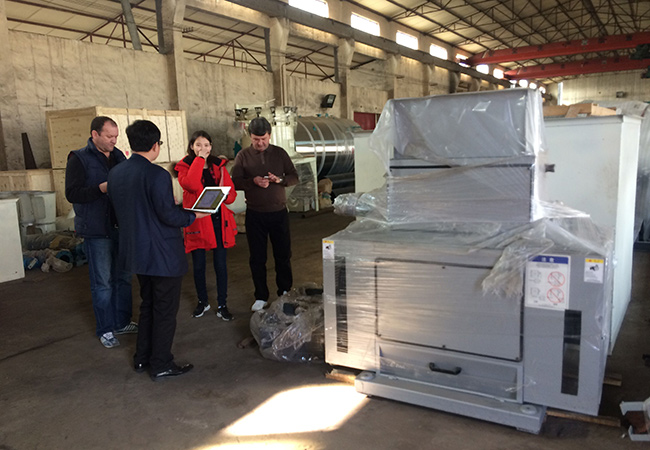Dec . 29, 2024 16:03 Back to list
buy flaxseed oil refinery unit
The Essence of Flaxseed Oil and the Significance of Refinery Units
Flaxseed oil, derived from the seeds of the flax plant (Linum usitatissimum), has gained popularity in the health and wellness sectors due to its rich nutritional profile. Packed with omega-3 fatty acids, lignans, and fiber, flaxseed oil is often touted for its potential health benefits, including improved heart health, reduced inflammation, and enhanced skin quality. As the demand for flaxseed oil continues to rise, it has become increasingly important to understand the processes involved in its production, particularly the role of refinery units.
Understanding Flaxseed Oil Production
The extraction of flaxseed oil begins with the careful selection of flaxseeds, which can be processed either through cold pressing or solvent extraction methods. Cold pressing is the preferred method for retaining the oil's natural flavors and nutritional benefits. However, the oil extracted through this method contains impurities and requires further refinement to meet the standards for commercial distribution.
This is where refinery units come into play. Refinery units are specialized facilities that process crude flaxseed oil to produce a high-quality end product suitable for both culinary and cosmetic uses. The refining process typically involves several stages, including degumming, neutralization, bleaching, and deodorization. Each stage is essential to enhance the oil's purity, stability, and shelf life.
1. Degumming This first step involves removing phospholipids and other impurities that can affect the oil's quality. Water is usually added to the crude oil to hydrate the gums, which are then removed through centrifugation.
2. Neutralization In this stage, free fatty acids are neutralized using an alkali solution, producing soapstock as a byproduct. This step is crucial for improving the oil's flavor and reducing any potential bitterness.
3. Bleaching To enhance the color and remove any residual pigments, the oil is treated with bleaching agents, typically activated clay or carbon. This step ensures that the flaxseed oil maintains an appealing appearance.
buy flaxseed oil refinery unit

4. Deodorization Finally, the oil undergoes a steam distillation process to eliminate any undesirable odors and flavors. This step is critical as it enhances the oil's appeal in culinary applications and cosmetics.
The Importance of Quality in Flaxseed Oil
The quality of flaxseed oil is paramount, not only for consumer satisfaction but also for health considerations. High-quality flaxseed oil should have a clear, golden color with a fresh, nutty aroma. It should be free from rancidity and any off-flavors. Refined flaxseed oil, produced in state-of-the-art refinery units, is more stable and has a longer shelf life compared to unrefined variants.
Moreover, purchasing flaxseed oil from reputable sources ensures that consumers are getting a product that is not only safe to consume but also meets nutritional standards. With the rise of health-conscious consumers, there is a growing market for certified organic and cold-pressed flaxseed oil, further emphasizing the need for quality assurance in refinery processes.
The Future of Flaxseed Oil Refinery Units
As global awareness of omega-3 fatty acids and their health benefits grows, the demand for flaxseed oil is expected to increase. This trend signifies an opportunity for new and existing refinery units to innovate and optimize their processes. Investing in advanced technologies and sustainable practices will be critical in meeting this demand while ensuring the ethical production of flaxseed oil.
In conclusion, the refinement of flaxseed oil is an intricate process that significantly impacts the oil's quality and efficacy. By understanding the importance of refinery units in producing high-quality flaxseed oil, consumers can make informed decisions that not only benefit their health but also support sustainable practices in the food and wellness industries. As the market for flaxseed oil continues to expand, so too does the importance of maintaining rigorous quality standards in its production.
-
Leading Food Oil Refined Unit Companies | Quality & Efficient Solutions
NewsAug.27,2025
-
Expert Food Oil Refined Unit Companies | Advanced & Efficient Refining
NewsAug.26,2025
-
Food Oil Refined Machine Companies: High-Efficiency Oil Refining
NewsAug.25,2025
-
Popular Commercial Oilseed Crushing Machinery | High-Yield Oil Expeller Press
NewsAug.24,2025
-
Food Oil Refined Unit Companies: Leading Manufacturers & Exporters
NewsAug.23,2025
-
Expert Oil Filter Machine Service & Solutions | Quality & Reliability
NewsAug.22,2025
